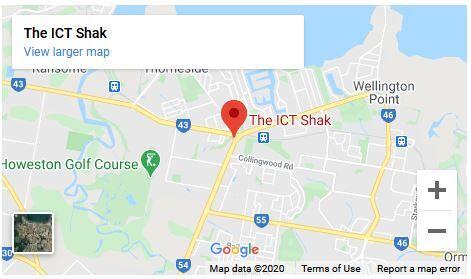Step into the realm of search engines! This piece will uncover the mechanics behind search engines, such as Google and other multiple search engines, grasp their operations, and investigate ways to enhance website visibility and ranking through optimising search engines, which play a vital role in this regard.
In the digital age, the way an engine looks and functions have become integral to how we navigate the vast expanse of information on the internet. Search engines like Google, Bing, and others have become indispensable tools for finding information swiftly and efficiently.
Whether you're looking to use a search engine for research, shopping or simply satisfying your curiosity, understanding the mechanisms search engines use to determine the most relevant results is key. With search engines incorporating sophisticated algorithms and technologies, users can now search for any word and expect to find a plethora of relevant information at their fingertips.
Understanding Search Engines for Improved SEO
How do Search Engines Work?
Search engines are designed to help users find relevant information on the World Wide Web efficiently. Their primary function is to crawl web pages, index them, and display relevant results when a user enters a search query.
Search engines use algorithms to scan and analyse web pages, determining their relevance to specific search terms. These algorithms play a crucial role in ranking web pages based on various factors.
What Are Some Popular Search Engines?
Google, Bing, and Yahoo are some of the most widely used search engines today. The Google search engine is known for its sophisticated algorithms that prioritise user experience and relevant results. On the other hand, Bing distinguishes itself by offering a visually appealing interface and unique search features.
Yahoo, despite being one of the older search engines, still retains a loyal user base. Both Bing and Yahoo personalise search results by considering factors like location, browsing history and user preferences.
What is Search Engine Optimisation?
Search engines are software systems designed to explore the vast expanse of the internet to retrieve relevant information based on specific keywords or queries entered by users. They act as gateways to the internet, allowing users to find and access web content quickly and efficiently.
Search engines work by employing complex algorithms that analyze web pages' content, structure, and relevance to determine the most appropriate search results for a given query. This process begins with web crawlers, also known as spiders or bots, which systematically traverse the web, scanning and indexing web pages they encounter.
Once indexed, the search engine's algorithms evaluate various factors, such as keyword usage, metadata, backlinks, and user behavior, to rank and prioritise search results. The goal is to present users with the most relevant and authoritative content in response to their search queries.
Search engines continuously refine and update their algorithms to provide users with the best possible search experience. This includes considering factors like user location, search history, and device type to deliver personalised results tailored to individual preferences and needs.
Search engines play a crucial role in helping users navigate and access information on the internet by indexing and ranking web content based on relevance and user intent. Through the use of sophisticated algorithms and web crawling technology, search engines facilitate the discovery and retrieval of valuable information from the vast digital landscape of the World Wide Web.
Understanding how Search Engines find Results
Search engine results pages (SERPs) are generated based on the relevance and authority of web pages. Factors such as keyword relevance, backlinks, website quality, and user experience influence how pages are ranked in search results.
Websites can optimise their content by following SEO best practices, creating valuable and engaging content, and ensuring their website is technically sound to improve search engine visibility.
The Role of Keywords and Terms in SEO
Web search has become an integral part of daily life, with users relying on web search engines to find information on the web. A search tool acts as a gateway to this wealth of information, enabling users to navigate and discover relevant content efficiently. The internet search engine landscape is dynamic, with players like Brave Search emerging to challenge the dominance of established giants. In the competitive search engine market, algorithms play a crucial role in determining the relevance and ranking of search results.
The evolution of web search dates back to the inception of the first search engine, which laid the foundation for major search engines that followed. While every search engine aims to provide accurate and timely results, alternative search engines offer diverse approaches to improve your search experience. Understanding how search engines work is essential for users to leverage their capabilities effectively. Techniques such as search engine optimisation (SEO) help the search engine understand and prioritise content, enhancing its visibility to users.
DuckDuckGo is a search engine that's a notable example of an alternative search engine that prioritises privacy and unbiased results. Despite the dominance of certain players, users have the freedom to choose their default search engine based on preferences. Search engines provide invaluable assistance in navigating the vast expanse of the internet, helping users find information on diverse topics. Whether it's the World Wide Web Wanderer or a modern algorithm-driven engine, the core function remains the same: to assist users in accessing relevant information quickly and efficiently.
Utilising Search Queries for Improved Indexing
Search queries play a crucial role in search engine operations as they help users find relevant information quickly. Users can refine their search terms and queries by using specific keywords, phrases, and filters to narrow down results.
Search engines match queries to relevant web pages by analysing the content, meta information, and overall relevance of the pages. By understanding user intent and behaviour, search engines can deliver more accurate results.
By learning about search engines, how they work, and the importance of SEO, website owners and digital marketers can enhance their online presence, attract more visitors, and improve their search engine ranking. Stay informed about the latest trends in search engine optimisation to stay ahead in the competitive online landscape.
Search engine companies like Google and Bing utilise complex search engine algorithms to determine the relevance of search results when a user enters a query. These mainstream search engines make money primarily through advertising, leveraging data collected from user interactions. However, for users concerned about privacy, private search engines offer an alternative, ensuring their browsing remains confidential. Regardless of the choice, understanding how search engines use various factors like user behaviour, keywords and website credibility to determine rankings is crucial for optimising search engine performance within any web browser.
What are search engines and how do they work?
A search engine is a software system that is used to search the internet for content based on specific keywords or queries entered by users.
Search engines display information by using web crawlers to scan web pages, index them, and then display the most relevant results to users based on their search terms.
How can I improve my website's indexing on search engines?
Improving your website's indexing on search engines involves implementing various strategies to enhance its visibility and relevance to search engine algorithms. One effective approach is to utilise search engine optimisation (SEO) techniques, such as optimising meta tags, headers, and URLs, and incorporating relevant keywords throughout your website's content. Additionally, creating high-quality, original content that provides value to your target audience can attract more visitors and increase your website's authority in the eyes of search engines. Following a style manual for content creation can help maintain consistency and readability, which can further improve indexing. It's also essential to ensure that your website is technically sound, with fast loading times, mobile responsiveness, and secure HTTPS encryption, as these factors can positively impact indexing and rankings. Finally, regularly monitoring your website's performance through tools like Google Search Console and making adjustments based on analytics data can help you continuously improve your website's indexing and visibility on search engines.
Why is it important to personalise search engine results?
Personalising search engine results is crucial because it enhances the user experience by delivering tailored content that aligns with individual preferences, interests, and behaviours. By analysing user search history, browsing habits, and demographic information, search engines can provide more relevant and meaningful search results. This customisation not only saves users time by presenting them with information that is most likely to be useful or interesting but also increases user satisfaction and engagement with the search engine platform. Furthermore, personalised search results can lead to higher click-through rates, increased user retention, and improved overall search engine performance. In essence, personalisation helps search engines better serve the diverse needs and preferences of their users, ultimately enhancing the effectiveness and usability of the search experience.
What is a browser and how does it relate to search engines?
A browser serves as a gateway to the internet, enabling users to access and navigate web content. It is a software application that interprets and displays webpages, allowing users to interact with various online resources, including websites, multimedia, and web applications. Within a browser, users can enter web addresses (URLs) or search queries to locate specific information or websites. This is where search engines come into play. Search engines are integrated into browsers to facilitate the process of finding information online. Users can input search queries directly into the browser's search bar, and the browser utilises the selected search engine to retrieve relevant search results from the vast expanse of the internet. In essence, browsers and search engines work hand in hand to empower users to explore and discover content on the web, making the browsing experience more seamless and efficient.
How do search engines help users find the information they're looking for?
Search engines play a crucial role in helping users navigate the vast expanse of information on the internet. They achieve this by employing complex algorithms that analyse various factors to deliver relevant search results to users. When a user enters a query into a search engine, the algorithm scans billions of web pages and evaluates factors such as keywords, metadata, and user behaviour to determine the most relevant results. Keywords are matched with content across the web, while metadata, including titles, descriptions, and tags, provide additional context for understanding the content's relevance. Moreover, search engines track user behaviour, such as click-through rates and time spent on pages, to continuously refine and improve search results based on user preferences and engagement patterns. Through these mechanisms, search engines help users quickly and efficiently find the information they seek amidst the vast sea of digital content available online.
How do search engines make money
Search engines primarily make money through advertising, leveraging their vast user base and data insights to offer targeted advertising solutions to businesses. These platforms, such as Google and Bing, utilise sophisticated algorithms to display relevant ads alongside search results, ensuring advertisers reach users who are actively seeking their products or services. Additionally, search engines offer advertising options beyond traditional search results, including display ads, video ads, and sponsored content across their network of partner websites and platforms. By providing valuable advertising opportunities and maximising user engagement, search engines generate substantial revenue streams, driving their profitability and continued innovation in the digital advertising landscape.
The ICT Shak is a dynamic web development company based in Brisbane, Australia, dedicated to providing comprehensive support for small businesses in enhancing their online presence. Specializing in web development and digital marketing, we offer tailored solutions to help businesses thrive in the competitive online landscape. Our team of skilled professionals is committed to delivering high-quality websites and effective digital marketing strategies that drive results. With a focus on customer satisfaction and innovation, The ICT Shak is your partner in achieving online success. Click here to arrange a quote or call 07 3103 3133.
We specialise in helping businesses with their local search engine optimisation
Find out how your business is ranking in your Local Area
![]() Local Search Rankings
Local Search Rankings![]() Local Listings
Local Listings![]() Reviews
Reviews![]() On-site Search Engine Optimisation
On-site Search Engine Optimisation![]() Social Media
Social Media




